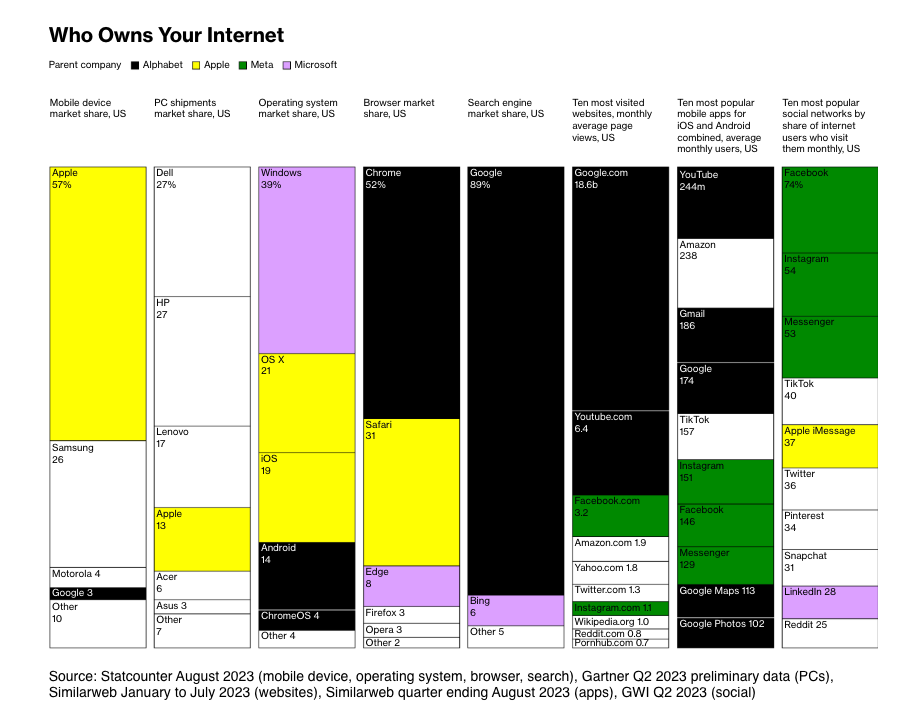The Internet Is Pink SlimeYou are stupid because under capitalism the lowest quality stuff floats to the top.Helllllllloooooooooooooooo, For today’s Link Drop, there’s more people than ever arguing about whether everything wrong with our brains is due to the phones or our school system or our politics or even, simply, each other. But left unsaid in much of these debates is what, to me, should be an obvious fact: they all have the same cause! Arguing about which of these factors is primary in leading us to lives of stupidity and meaninglessness is like rearranging deck chairs on the Titanic. Or worse: it’s like blaming the chairs for the ship sinking, and not even realizing you’re on a ship to begin with. To make more sense: A world built via hypercapitalism is a world that creates increasing inequality, and increasing inequality is bad for everything, including our brains. The phones, the schooling, the discourse—all of it is part of the same rot at the root of our society. The reason people are getting more stupid, can’t read, and are supporting policies that go against their self-interest is the same reason people are dying earlier and can’t access healthy food and are turning to dangerous drugs to ease their pain: inequality affects and infects everything. For some reason, we tend to think of our brains and the information that feeds them as somehow separate from everything else in this world. But consolidated corporate control of any system leads to worse outcomes, and this is no less true for our information and education ecosystems than it is for our food system or housing system or transportation system. To that end: -New York Magazine has a good series of stories pondering why people are getting dumber. The stories contain some alarming stats that show what we all intuitively know to be true to be true. One of the stories cites the research of Elizabeth Dworak, who, as part of her 2023 master’s thesis, looked at IQ trends and found that we’ve been in a downward IQ spiral since 2006. IQ, of course, is an imperfect measure of intelligence, but other measures seem to point to the same trend: ACT scores, for example, are at their lowest level in over three decades, and high school math scores are at their lowest in two decades. Features writer Lane Brown posits this decline has less to do with technology as a whole, and more to do with what technology has enabled—namely the ability for all of us to yammer on about everything at each other forever, without anyone needing to know what they’re really talking about.
It’s a fine thesis for a piece, but one that misses the larger systemic reason for this. To say “it’s not the phones but what we do on them” elides that what we do on the phones is completely controlled by the makers of those phones and the makers of those things called apps on those phones. We think we have the freedom to yammer, but really the forms our yammering take—the fact that the worst and stupidest and most incendiary stuff (the “junk food” of human thought, if you will) is all that’s accessible to most people—has everything to do with the fact that the internet is nearly completely controlled by six companies (Apple, Alphabet, Meta, Microsoft, Amazon, TikTok).
It’s a shame so many people get lost in the details of this stuff, because it disenables any kind of holistic fight against it. Sure, ChatGPT might be evil, but it’s not simply that the technology itself is evil, it’s that these technologies are given near-limitless power over our eyeballs and brains by a government that is essentially run by the corporations themselves. To use an analogy: Monsanto’s GMO corn seeds might be horrible for the environment and our bodies, but one farm growing them is much different than crony capitalism essentially mandating that all commodity crops use Monsanto (or Dow Chemical or BASF) seeds. When we go to the grocery store, we are given the illusion of choice of thousands of products, when really those products are mostly just corn, soy, sugar and cheap fats, thanks to our government-supported agricultural monoculture. This is similar to how the internet functions these days: we have the illusion of countless forms of information, when really nearly all that information comes from a vanishingly small and decreasing number of sources. The industry of finding new information—i.e. journalism—has completely collapsed. Our eyes are all on a diet of the proverbial high-fructose corn syrup... Subscribe to Mental Hellth to unlock the rest.Become a paying subscriber of Mental Hellth to get access to this post and other subscriber-only content. A subscription gets you:
|

